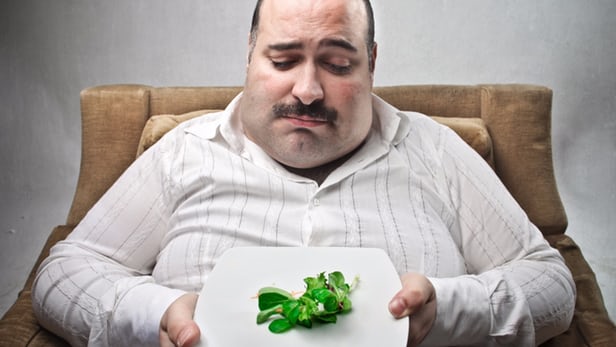Eat less ... and live longer?

New research suggests that cutting calories is connected to increased longevity(Credit: olly18/Depositphotos)
New research suggests that cutting calories could do more than just slim our waistlines, it might also be a newfound fountain of youth. A study by a team at Brigham Young University finds that eating less can actually slow down the process of aging at a cellular level.
Scientists observed two groups of mice – one with access to an all-you-can-eat buffet while the other had enough food to survive but with calories restricted to 35 percent less. The mice with a lower caloric intake saw protein production by the ribosomes in their cells reduced. This actually slows down the aging process of the cell by allowing the ribosomes to repair themselves.
"The ribosome is a very complex machine, sort of
like your car, and it periodically needs maintenance to replace
the parts that wear out the fastest," said BYU biochemistry
professor and study co-author John Price. "When tires wear out,
you don't throw the whole car away and buy new ones. It's
cheaper to replace the tires."
Price explains that there seems to be a direct connection between restricting calorie consumption and an increase in longevity.
"The calorie-restricted mice are more energetic and
suffered fewer diseases," Price said. "And it's not just that
they're living longer, but because they're better at maintaining
their bodies, they're younger for longer as well."

The BYU team isn't the first to make the connection between caloric intake and lifespan. In fact, a long-term study involving monkeys that spans decades has shown similar results – one of the study subjects has even set a longevity record for his species.
The link to a slowdown in protein production on the cellular level and the part played by the ribosome in preserving youth is a new revelation, according to the BYU team. Ribosomes can use up to a fifth of a cell's energy to create the proteins it needs to function. Eating less reduces demand on this tiny protein factory, so it has time to do a little self-maintenance in order to keep producing quality proteins that keep the entire body functioning better.
But Price cautions that starving yourself to stay young isn't a strategy that can be prescribed just yet. Such research has yet to be tested on humans and a more well-rounded approach to self care is essential.
"Food isn't just material to be burned — it's a
signal that tells our body and cells how to respond," Price
said. "We're getting down to the mechanisms of aging, which may
help us make more educated decisions about what we eat."
Source: Brigham Young University
